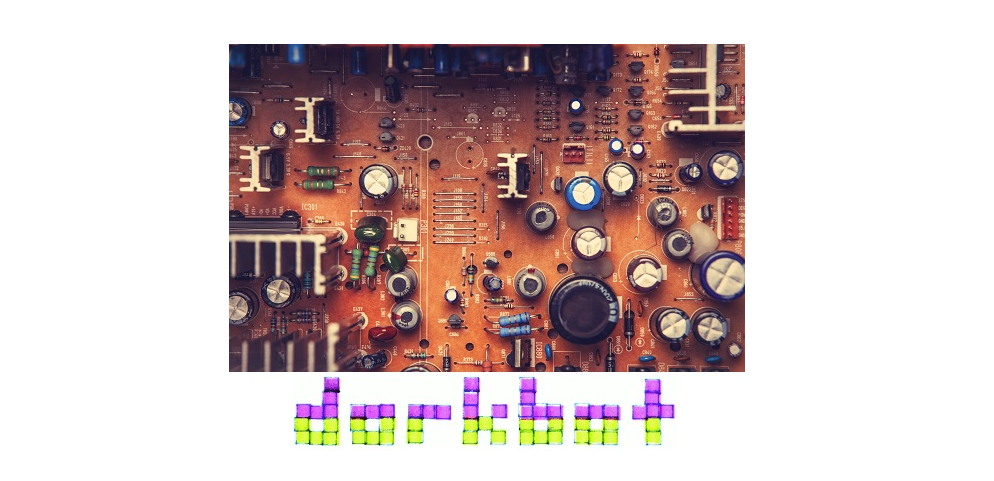

In the contemporary landscape, the notion of “culture” has evolved into a dynamic and all-encompassing concept. What we now recognize as mainstream cultures often had their roots in subcultures before achieving dominance. Imagine mainstream culture as a mature yet slightly mundane adult, while subcultures embody the characteristics of an impulsive, fun, unpredictable, and independent adolescent. Exploring Chinese names for subcultures adds a unique dimension to this cultural tapestry, reflecting the vibrant and ever-shifting nature of societal expressions. Dive into the exploration of Chinese subcultures and their distinctive names, uncovering the rich and diverse layers that contribute to the cultural mosaic.
When it comes to subculture, there are a few eye-catching ones Chinese are quite familiar with. From “Hippies” and “Punk” to “Otaku” and “Loli”, the names breathe life into the communities, telling stories of their own beliefs, preferences and habits as if each is an individual person. Now, we’re seeing many relatively new subcultures stepping into Chinese people’s eyes, many of which, lack a proper Chinese name to represent their key beliefs and identity. We wish to change that by creating Chinese names for these subcultures. From this unique perspective, we hope to demystify foreign subcultures for more Chinese readers.

Hipster 新皮士 [xīn pí shì]
新 [xīn]: new
皮士 [pí shì]: borrowed from “嬉皮士”, Hippies
Do not confuse Hipsters with Hippies. Even though they do share some common grounds, the two vary greatly in today’s terms. The word “Hipster’ was actually originated in the United States during the “jazz age” in the 1940s. By the 1960s, another youth movement called “Hippies” emerged and eventually developed into a subculture. The “Hippie” name was inspired by “Hipster” and not the other way around.
In the past two decades, the hipster subculture has evolved and resurfaced among today’s youngsters. The modern hipsters appreciate non-mainstream music and arts. They enjoy “vintage” styled fashion and value progressive politics and independent thinking. Time magazine once amusingly commented that “Hipsters are the friends who sneer when you cop to liking Coldplay. They’re the people who wear t-shirts silk-screened with quotes from movies you’ve never heard of… Everything about them is exactingly constructed to give off the vibe that they just don’t care.”
Chinese are used to calling the Hippies as “嬉皮士” [xi pi shi], and the words “hippie” and “hipster” share commonalities. From this we named Hipster as “新皮士” [xin pi shi]. We decided to adopt the “皮士” [pi shi] part in the name for “hipster”. In this way, the name is more memorable and evokes the association with hippie. The first character “新” means “new”, demonstrating the hipster subculture’s new development in the modern times.

Vlogger 玩影客 [wán yǐng kè]
玩 [wán]: play
影 [yǐng]: record, film
客 [kè]: people
Vlogger refers to a person who does vlog, which is short for video blogging. For its Chinese name, we adopted the format from the Chinese term “博客” [bo ke] (blog) and named Vlogger as “玩影客” [wán yǐng kè]. The character “玩” [wan] (play) creates a phonetic link to the letter V in “vlogger”, and reflects the playful and lifestyle attributes of the vloggers. “影” means recording and film.
Renowned international video platform Youtube is undoubtedly the base for Vloggers. It greatly contributed to the thriving of vlogging as a subculture. Today, numerous Youtube channels are dedicated to regular updates of clips from Youtubers’ lives. These user generated content (UGC) greatly differs from traditional TV or the not-so-real reality shows. Today’s people surprisingly enjoy the daily life of strangers on the internet. Perhaps it’s because the real, plain and comical quality of these video blogs are exactly what’s relatable and relaxing for today’s busy people.

Ultra Runner 极跑客 [jí pǎo kè]
极 [jí]: ultra
跑 [pǎo]: run
客 [kè]: people
In recent years, the concept of running, especially long-distance running has become a trend in Shanghai. Not only do we have countless races and running events, we witness everyday on the street many fully armed runners running and sweating despite the smog. But, Ultra Runners are the ones who take long-distance running to the next level.
Ultra runners take part in ultra-marathons that are usually 50 or 100 kilometers long. Moreover, to make it even tougher, they run in extreme environments such as the Sahara Desert, the Amazon Jungle or the Antarctic. Though the race is extremely excruciating, the prize is unbelievably small, barely reimbursing the expenses of training. However, for these ultra-runners, the prize is never their main motivation. Many of them run for charities or a sense of self-achievement. Whatever the intention is, the truth is that they are not afraid of challenging themselves.
We give Ultra runners the Chinese name “极跑客” [jí pǎo kè]. The character “极” [jí] is a direct translation of the word “ultra”, which reflects the core value this extreme sport.

Fandom 粉魔党 [fěn mó dǎng]
粉 [fěn]: fan
魔 [mó]: obsessed
党 [dǎng]: party
Fandom is the “kingdom of fans”. Simply speaking, they are a group of seriously dedicated fans. They are crazy about the same film franchise, the same video game, the same pop star or the same saga. The fans with the same passion share a sense of empathy and camaraderie towards each other.
Unlike ordinary fans, the “fandom” tend to pay close attention to every detail of the things they love. They are not hesitate to invest time, money and energy to all sorts of social activities, such as Cosplay, fan-fiction, radio play or conventions. As many fan groups give themselves nicknames, the Star Trek fandom is dubbed Trekkies. Trekkies could list all the Star Trek characters, point out loopholes in the story, or would argue with another Trekkie over the right or wrong in the Captain’s problem-solving. Their dedication is fascinating. Just think of Sheldon in Big Bang Theory, who is most definitely in the fandoms of Star Wars and Star Trek.
Therefore, we named fandom “粉魔党” [fěn mó dǎng]. The Chinese character “粉” [fěn] is from the word “粉丝” [fěn sī], which means fans; while “魔” [mó], meaning “obsessed”, is a description of the enthusiasm of the fans. The character “党” [dǎng] represents a certain organization or community, thus differentiating itself from individuals. Moreover, “粉魔堂” is a perfect phonetic representation of the original word “fandom”.

Dorkbot 呆电班 [dāi diàn bān]
呆 [dāi]: dorky
电 [diàn]: electronic
班 [bān]: class
Dorkbot is an international worldwide community of electronic art creators. It organizes gatherings of artists, engineers, scientists and inventors all around the world. Dorkbots proclaims to be “people doing strange stuff with electricity”.
Unlike other associations of electronic art lovers, Dorkbot members are usually with respectable education background. They often organize events on campus, encouraging students’ involvement and exchange. This is one of the reasons why we chose “班” [bān], class, to describe the community.
Introducing Dorkbot, affectionately named 呆电班 [dāi diàn bān] in Chinese. Despite the “dork” in its English name, this prefix carries a positive connotation, celebrating the community’s dedication. The choice of “呆” [dāi] as the starting character adds a unique touch. Moreover, the term “呆电” [dāi diàn] phonetically resembles “带电” [dài diàn], encapsulating the cutting-edge and cool essence of this vibrant subculture.
These subcultures are just the beginning; there’s a vast cultural landscape waiting to be explored. Witness the emergence of other subcultures around you and stay tuned as we delve deeper into this series. For the latest updates, subscribe to Labbrand’s newsletter and join us in unraveling the diverse tapestry of Chinese names for subcultures!
A Labbrand Group Company © 2005-2025 Labbrand All rights reserved
沪ICP备17001253号-3To improve your experience, we use cookies to provide social media features, offer you content that targets your particular interests, and analyse the performance of our advertising campaigns. By clicking on “Accept” you consent to all cookies. You also have the option to click “Reject” to limit the use of certain types of cookies. Please be aware that rejecting cookies may affect your website browsing experience and limit the use of some personalised features.